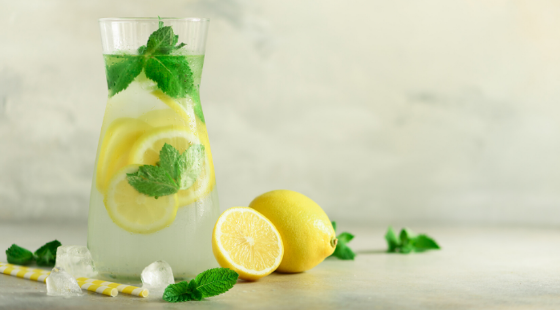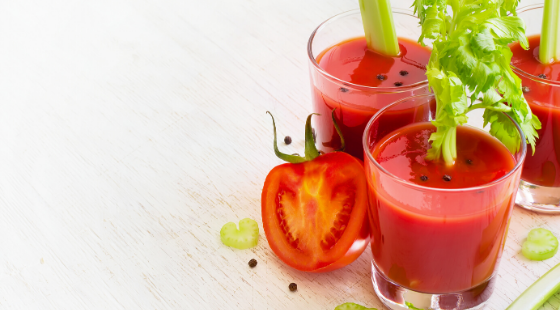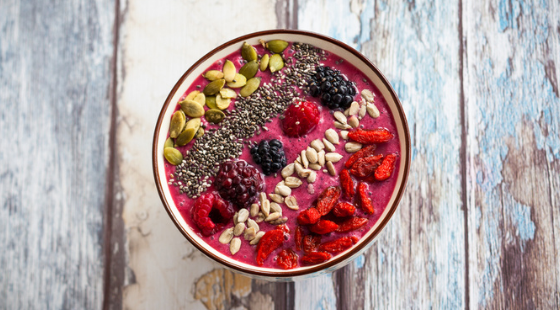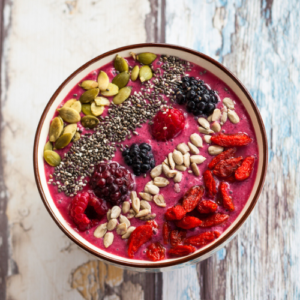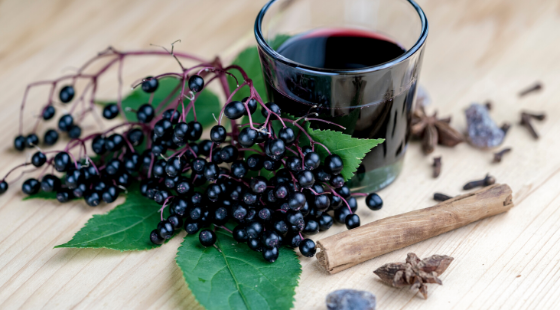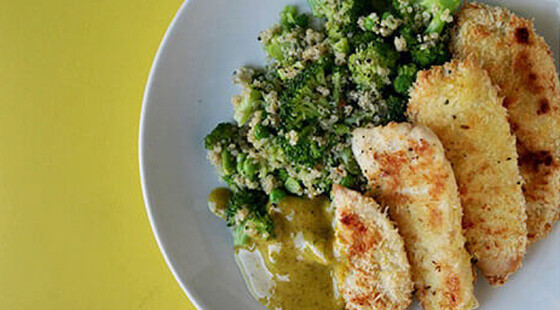Anthocyanins are a type of flavonoid, a class of compounds with antioxidant effects. Anthocyanins are the pigments that are responsible for giving fruits and vegetables their red, purple, and blue colours, which is commonly found in berries such as pomegranates, grapes, bilberry, elderberry, black currants, blueberries, raspberries, blackberries, and cranberries.
Anthocyanins may offer anti-inflammatory, anti-cancer and even anti-viral, benefits. In fact studies show that there is a positive relationship between antiviral activity and polyphenol content of the berries, indicating the possibility that polyphenol is one of the key factors in the antiviral effects of berries (1,2). Studies have shown that anthocyanins can prevent influenza viruses from penetrating human cells and may inhibit viral release once the cell is infected (5).
With this in mind let’s have a look at how berries can help support our immunity.
Bilberries
Based on certain studies, the Vitamin C content in a bilberry is five times higher than that in an orange.
Researchers at the Washington University School of Medicine in St. Louis focused on the effects of flavonoids — antioxidants found in dark chocolate, bilberries and red wine — on intestinal microbiota, researchers found that these nutrients could “collaborate” with certain microbiota bacteria to combat influenza and other viral infections. The results of the study indicate that interaction between the bacteria and the flavonoids does not target flu viruses directly, but rather stimulates a response that prevented the immune system from harming lung tissue (3) while fighting the illness.
Black Currant
Black currant seed oil contains a chemical called gamma-linolenic acid (GLA). Some research suggests that GLA might improve the immune system, making it more able to fight off disease. Blackcurrants are also one of the densest known sources of the polyphenol antioxidant class called anthocyanins, which have been shown to help our immune system defend us against other viral infections, such as those that cause enteritis and common colds (4).
Researchers at Japan’s Asahikawa Medical College examined the effects of blackcurrants against influenza virus A and B (IVA and IVB). The results showed both viruses were inactivated up to 99.9%. When IVA-infected cells were treated with blackcurrant extracts, the virus was completely suppressed in six hours. This study showed that not only can blackcurrant extracts inhibit IVA and IVB on contact, they also may prevent further infection by blocking the viruses’ ability to leave infected cells (4).
Increasing evidence suggests anthocyanins may support immunity by making the immune system more efficient at fighting and clearing a virus when it does encounter one (6,7). The way the polyphenol anthocyanins in blackcurrants work with the immune system means that if we do get sick, the severity and subsequent tissue damage from the infection may be decreased (8), thus allowing us to recover faster.
Pomegranate
Limited studies have been conducted on the antiviral activities associated with pomegranate and its extracts. Despite this, the studies that have been completed have identified anti-viral effects against clinically relevant influenza virus, herpes virus, poxviruses, and human immunodeficiency (HIV-1) virus [10–12].
Haslam (13) suggested that plant polyphenols exert a direct action on the viral particles, inhibiting the adsorption of the virus to the host cell receptors.
The tannins and anthocyanins are the main compounds associated with the beneficial effects of pomegranate consumption. In one study, the flavonoid, punicalagin found in pomegranate was shown to have inhibitory effects on influenza virus [15]. It is possible that pomegranate juice and extracts could be potentially useful in inhibiting viruses transmitted via infected food products, bodily fluids, and so forth (16).
Elderberry
The elderberry is reputed by some to be effective in treating the common cold, flu, and sinus infections. It also has antiviral properties that may prevent or reduce the severity of certain common infections. In fact, a study completed in 2012 suggested that elderberry could help prevent influenza infection by stimulating an immune response (17) and a 2019 study on elderberry for both cold and flu suggested that the fruit substantially reduced upper-airway symptoms (18).
A 2016 study from Australia reported that, among 312 long-haul airline passengers, those who used elderberry extract 10 days before and five days after their flight had 50 percent fewer sick days resulting from a cold than those who didn’t. What elderberry did not appear to do was reduce the risk of getting a cold; both the elderberry group and placebo group had more or less the same number of infections (19), but in the passengers who used elderberry symptoms were less severe based on a scoring of upper respiratory tract symptoms.
Cranberry
The study, published in Nutrition Journal, found that individuals who drank a low calorie cranberry beverage with similar polyphenol content to cranberry juice cocktail every day for 10 weeks had nearly five times more growth of immune-boosting cells and significantly fewer cold and flu symptoms than non-cranberry consumers. Researchers observed that the fruit’s immunity benefits came from the presence of yδ-T cells, which are the body’s first line of defence against harmful bacteria. By improving their function, scientists believe we can reduce the number of symptoms associated with the common cold and flu (20).
Summary
To support your immune system and potentially help reduce respiratory virus symptom severity, make sure you consume your berries every day! Put them in salads, smoothies, yogurt or oatmeal, or even on their own as a healthy snack.
For inspiration to include more berries in your diet, check out our Berry Beet Smoothie Bowl.
Or, if you struggle to get berries into your diet or to eat enough variety of berries you may want to explore a whole food berry supplement.
References
- Duymuş HG, Göger F, Başer KH. In vitro antioxidant properties and anthocyanin compositions of elderberry extracts.Food Chemistry. 2014 Jul 15;155:112-9. doi:10.1016/j.foodchem.2014.01.028
- J Sci Food Agric. 2013 Jul;93(9):2239-41. doi: 10.1002/jsfa.6031. Epub 2013 Jan 28. Relationship between polyphenol content and anti-influenza viral effects of berries. Sekizawa H1, Ikuta K, Mizuta K, Takechi S, Suzutani T.
- Ashley L. Steed, George P. Christophi et al The microbial metabolite desaminotyrosine protects from influenza through type I interferon, Science 04 Aug 2017:Vol. 357, Issue 6350, pp. 498-502
- https://www.ncbi.nlm.nih.gov/pubmed/24660461
- https://www.ncbi.nlm.nih.gov/pubmed/17572513
- http://www.nzblackcurrants.com/assets/images/Health-Benefits-review-updated-9-November-2012.pdf
- https://www.ncbi.nlm.nih.gov/pubmed/17634269
- https://www.ncbi.nlm.nih.gov/pubmed/20229526
- https://www.ncbi.nlm.nih.gov/pubmed/18241960
- Haidari, M. Ali, S. W. Casscells, and M. Madjid, “Pomegranate (Punica granatum) purified polyphenol extract inhibits influenza virus and has a synergistic effect with oseltamivir,” Phytomedicine, vol. 16, no. 12, pp. 1127–1136, 2009.View at: Publisher Site | Google Scholar
- Neurath, N. Strick, Y. Y. Li, and A. K. Debnath, “Punica granatum (pomegranate) juice provides an HIV-1 entry inhibitor and candidate topical microbicide,” in Natural Products and Molecular Therapy, G. J. Kotwal and D. K. Lahiri, Eds., vol. 1056, pp. 311–327, New York Academy of Sciences, 2005.View at: Google Scholar
- J. Kotwal, “Genetic diversity-independent neutralization of pandemic viruses (e.g. HIV), potentially pandemic (e.g. H5N1 strain of influenza) and carcinogenic (e.g. HBV and HCV) viruses and possible agents of bioterrorism (variola) by enveloped virus neutralizing compounds (EVNCs),” Vaccine, vol. 26, no. 24, pp. 3055–3058, 2008.View at: Publisher Site | Google Scholar
- Haslam, “Natural polyphenols (vegetable tannins) as drugs: possible modes of action,” Journal of Natural Products, vol. 59, no. 2, pp. 205–215, 1996.
- Aviram, N. Volkova, R. Coleman et al., “Pomegranate phenolics from the peels, arils, and flowers are antiatherogenic: studies in vivo in atherosclerotic apolipoprotein E-deficient (E-o) mice and in vitro in cultured macrophages and upoproteins,” Journal of Agricultural and Food Chemistry, vol. 56, pp. 1148–1157, 2008.View at: Google Scholar
- G. Kasimsetty, D. Bialonska, M. K. Reddy, C. Thornton, K. L. Willett, and D. Ferreira, “Effects of pomegranate chemical constituents/intestinal microbial metabolites on CYP1B1 in 22Rv1 prostate cancer cells,” Journal of Agricultural and Food Chemistry, vol. 57, no. 22, pp. 10636–10644, 2009.View at: Publisher Site | Google Scholar
- https://www.hindawi.com/journals/ecam/2013/606212/
- Kinoshita E, Hayashi K, Katayama H, Hayashi T, Obata A. Anti-influenza virus effects of elderberry juice and its fractions. Biosci Biotechnol Biochem. 2012;76(9):1633–1638. doi:10.1271/bbb.120112
- Hawkins J, Baker C, Cherry L, Dunne E. Black elderberry (Sambucus nigra) supplementation effectively treats upper respiratory symptoms: A meta-analysis of randomized, controlled clinical trials. Complement Ther Med. 2019;42:361–365. doi:10.1016/j.ctim.2018.12.004
- Tiralongo E, Wee S, Lea R. Elderberry supplementation reduces cold duration and symptoms in air-travellers: A randomized, double-blind placebo-controlled clinical trial. Nutrients. 2016;8(4):182. doi:10.3390/nu8040182.
- https://nutritionj.biomedcentral.com/articles/10.1186/1475-2891-12-161
